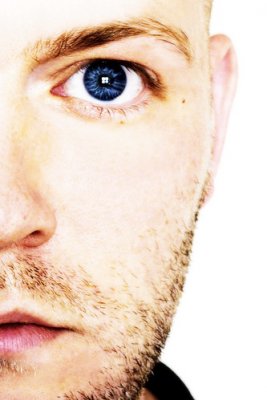More Self-Critical Than You Realise? 11 Signs to Spot

By: smlp.co.uk
by Andrea M. Darcy
Being self-critical is a serious problem. Research connects it to a greater risk of depression*, self-harm**, and eating disorders***.
And yet many of us don’t realise just how much self-criticism is our norm, until we find ourselves in therapy, listening more closely to our thoughts.
How to know you are seriously self-critical
What are the signs that you are actually a self-critical person?
1. You have different standards for yourself than friends.
Think about the last time a friend went through a hard time. What did you say to them? Did you encourage them, tell them they would handle this?
Try saying those same things out loud to yourself. Does it feel ridiculous and silly? It will, if you tend to beat yourself up even as you are nice to friends.
2. You deflect compliments.
The next time someone compliments your outfit, hair, your work, or otherwise, notice how you handle it. Do you make an excuse, or diminish the compliment? “Oh, this bag? It was on sale.” “Oh thanks, but really I had help on the report, so I can’t take credit.”
If our inner soundtrack is self-critical we simply can’t just say, ‘thank you’ to a compliment. It goes against our deep-rooted, unconscious belief that we are flawed and could do better.
3. Your partner and/or friends are always criticising you.
You might not realise you are self-critical if you are sure that it’s your partner or friends who are the critical ones, and see yourself as the victim.
But often we choose such people to be in our lives because they mirror what we ourselves are thinking. And sometimes we are even, without realising it, pushing that person to criticise us. Read more in our article, ‘Are You Mistakenly Encouraging Criticism?’.
4. You agree and go along with others, even if later you regret it.
Do you ever hear yourself laughing at a joke, then cringe inwardly because the subject of the joke actually goes against your personal values? And then spend a day beating yourself up for not speaking up? Or do you often say yes, when inside you are already regretting having to do yet another thing you don’t want to?
If we are self-critical we can project the need for approval we aren’t getting from ourselves onto others. So we become a pleaser with poor boundaries who never speaks up.
5. You blame yourself when things go wrong.
A mind stuck in a critical perspective is prone to blame, and often you blame yourself. Even in situations that really are outside of your responsibility, you find a way to make it your fault. Your brain immediately creates a ‘should have, could have’ list.

photo by taylor smith
Your teen is late after walking to school when your car breaks down and you think, if only you went for that MOT, or told your child to leave earlier, or walked with them. You don’t for one second consider that they are responsible for stopping to talk to people on the way.
6. You had a critical parent.
Did you have a parent who always criticised you for the way you behaved? Or made you feel you weren’t enough? Compared you to a sibling?
If they didn’t criticise you verbally, did they withdraw their love or attention unless you were ‘good’ and pleased them?
Self criticism is often a learned behaviour. Even if we swore up and down once we were independent and an adult we would never be like our parent, we unconsciously internalise their critical voice.
7. Or you experienced a difficult or traumatic childhood.
Sometimes it’s not a critical parent, it’s a tough childhood that causes you to be self critical.
‘Adverse child experiences’, or ACEs, are a set of challenges that can leave a kid with the idea they simply aren’t good enough when they can’t stop bad things from happening. And childhood trauma, such as abuse of any kind, severely damages a child’s sense or self and worth.
Unless you get help to process such experience(s), you’ll end up an adult with limiting beliefs and a voice in your head telling you you aren’t good enough.
8. There is a constant sense that you can’t keep up with all that needs to be done.
Self criticism stops us from enjoying achievements and recognising the mini accomplishments we reach each day. Instead it creates an atmosphere of ‘always striving, never arriving’.
9. You constantly compare yourself to others.

By: Bruna Schenkel
When you arrive at a party, what’s the first thing you do? Any chance it’s comparing yourself to others? If you are dressed as well as others, if the dish you bought is as good as the dish others bought, if the host seems to like you as much as the others?
Comparison can be such a habit we don’t realise it’s just a vessel for self criticising.
10. Your focus is on what isn’t working in life.
There is a right and a wrong, a good and bad. The hotel is bad because there was dust on the sideboard, regardless if it was good otherwise. A job is good if your boss likes you, regardless if you are not being challenged in. it.
You aren’t one to see in-betweens and shades of grey. Known as ‘black and white thinking’, this is a cognitive distortion — an incorrect way of seeing reality. And you’ll apply it to yourself, too. You are a good person or bad person, depending on the day.
11. Despite all your troubleshooting, you are not excelling in life.
Here’s the thing about self-criticism — it takes a tremendous amount of headspace. It also blocks you from taking chances and from recognising your unique gifts then using them to get ahead.
The end result is that even if you try very hard to be great, or even perfect, you might get to a point you realise you are behind in life, and behind your peers. Perfect fodder for another round of intense criticism.
Or, you could get support.
Can therapy help me stop being so self-critical?
Therapy helps you recognise what you actually think and feel. And a good therapist will help you recognise your inner strength and resources.You can start to see all the things that are actually going alright for you, and make better choices that mean you feel good about yourself.
Time to stop letting that self-critical voice in your head rule your life? We connect you with some of London’s most committed and experienced talk therapists who can help. Or use our booking site to find UK-wide registered therapists and online counsellors you can access from anywhere in the world.
Still have a question about being self-critical? Or want to share your experience with other readers? Post below. Note that we monitor comments and do not allow harassment or advertisements.
 Andrea M. Darcy is a mental health and wellbeing expert and writer. She also runs a consultancy helping people find their perfect therapy and therapist. She had a real problem with self-criticism and found CBT therapy enormously helpful in breaking the habit. Follow her on Instagram for useful life tips @am_darcy
Andrea M. Darcy is a mental health and wellbeing expert and writer. She also runs a consultancy helping people find their perfect therapy and therapist. She had a real problem with self-criticism and found CBT therapy enormously helpful in breaking the habit. Follow her on Instagram for useful life tips @am_darcy
FOOTNOTES
*Luyten, P. , Sabbe, B. , Blatt, S. J., Meganck, S. , Jansen, B. , De Grave, C. , Maes, F. and Corveleyn, J. (2007), Dependency and self‐criticism: relationship with major depressive disorder, severity of depression, and clinical presentation. Depress. Anxiety, 24: 586-596. doi:10.1002/da.20272
**Lisa H. Glassman, Mariann R. Weierich, Jill M. Hooley, Tara L. Deliberto, Matthew K. Nock,
Child maltreatment, non-suicidal self-injury, and the mediating role of self-criticism, Behaviour Research and Therapy,Volume 45, Issue 10,2007, Pages 2483-2490, ISSN 0005-7967, https://www.sciencedirect.com/science/article/abs/pii/S0005796707000824?via%3Dihub.
***Thew, G. R., Gregory, J. D., Roberts, K. and Rimes, K. A. (2017), The phenomenology of self‐critical thinking in people with depression, eating disorders, and in healthy individuals. Psychol Psychother Theory Res Pract, 90: 751-769. doi:10.1111/papt.12137




